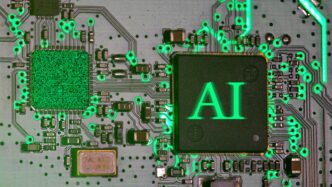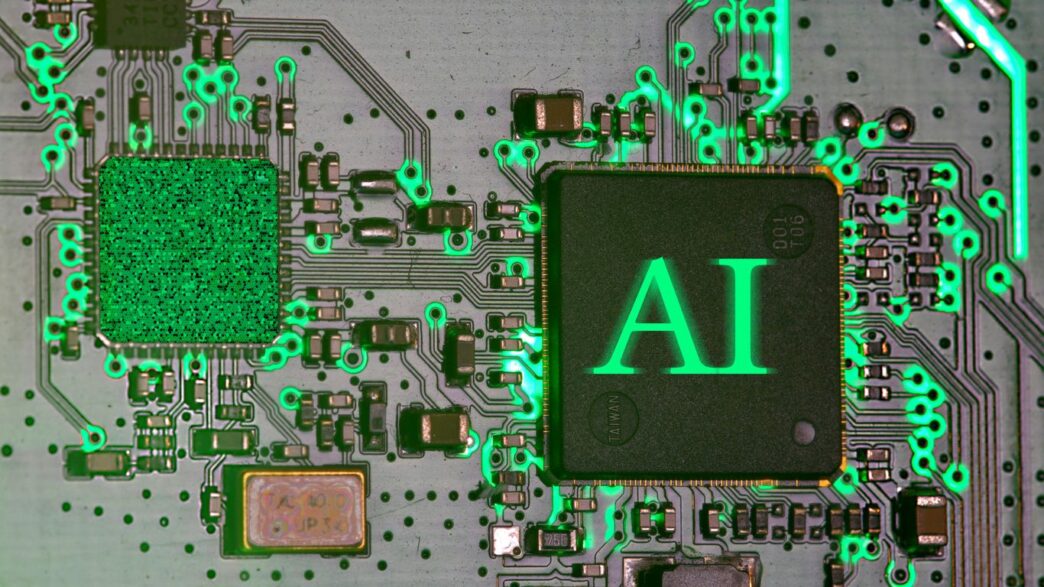The world of AI startup news is buzzing, and June 2025 was no exception. Billions of dollars are flowing into companies using artificial intelligence, showing just how much people believe in its power to change things. From helping code faster to making cars drive themselves, investors are putting their money where the innovation is. We’re seeing AI pop up everywhere, from defense systems to how we shop online, and it’s all happening across the globe. Let’s take a look at what’s new and what it all means.
Key Takeaways
- AI startups across the U.S., Europe, Asia, and Africa are pulling in huge amounts of money, showing a global interest in this technology.
- AI is making its mark in many different fields, including defense, healthcare, e-commerce, and business software, proving its wide-ranging usefulness.
- Companies building the tools and hardware for AI, like chips and developer platforms, are also getting a lot of attention and funding.
- New AI companies are popping up with ideas for things like environmental monitoring and making healthcare administration smoother.
- The future looks bright for AI in businesses and society, with a growing need for AI-powered solutions and a focus on using AI responsibly.
AI Startup Funding Trends: A Global Overview

This past year has been quite something for AI startups. Investors are really putting their money where their mouth is, pouring billions into companies that are building the future. It’s not just a few big rounds either; the sheer volume of investment shows a broad confidence in AI’s potential across the board. In 2025 alone, AI startups pulled in a massive $89.4 billion in global venture capital. That’s a huge chunk, making up 34% of all venture capital funding, even though AI companies were only 18% of all the businesses getting funded. It really highlights how much investors are betting on this technology right now.
Record-Breaking Investment Rounds Fueling AI Innovation
We’re seeing some truly eye-popping funding rounds. Companies working on everything from AI coding assistants to software for self-driving cars are bringing in hundreds of millions. For example, Anysphere, an AI coding assistant, secured a $900 million Series C. Applied Intuition, which develops software for autonomous vehicles, raised $600 million. Even defense AI is getting a significant boost, with Helsing AI securing around $650 million. These aren’t small sums; they represent major validation and provide these companies with the resources to scale rapidly and push the boundaries of what’s possible.
Geographic Distribution of AI Startup Funding
While the United States continues to be a major hub for AI investment, the trend is becoming increasingly global. We’re seeing substantial funding flow into startups across Europe, Asia, and even Africa. Companies like Biren Technology in China, designing AI chips, and Elloe AI in Kenya, focusing on conversational commerce, show that innovation and investment are happening everywhere. This worldwide spread suggests that AI is not just a Silicon Valley phenomenon but a global technological shift.
Key Sectors Attracting Significant AI Investment
AI’s reach is expanding into nearly every industry imaginable. While generative AI and autonomous systems are getting a lot of attention, other areas are also seeing major investment. Healthcare is a big one, with startups like Mandolin using AI to streamline insurance verification and Fathom AI using it for medical scribing. Enterprise software is another hotbed, with Glean raising funds for its AI-powered knowledge management system and Campfire developing AI-native accounting tools. Even areas like wildfire detection (Pano AI) and infrastructure planning (Continuum Industries) are attracting significant capital, demonstrating AI’s broad applicability and the diverse investment opportunities available.
Innovations Across Diverse Industries

It’s pretty wild how AI is popping up everywhere these days, isn’t it? We’re seeing it change how all sorts of businesses operate, from the really serious stuff like defense to everyday things like buying groceries. AI is no longer just a futuristic concept; it’s actively reshaping industries right now.
AI Revolutionizing Defense and Autonomous Systems
In the defense sector, AI is making big waves. Think smarter drones, more capable autonomous vehicles, and improved intelligence analysis. These systems can process vast amounts of data way faster than humans, helping with everything from reconnaissance to battlefield management. It’s a complex area, but the goal is to make operations more efficient and, hopefully, safer.
Transforming Healthcare and E-commerce with AI
Healthcare is another field where AI is making a real difference. We’re seeing AI models that can help doctors spot diseases earlier, sometimes with really high accuracy, by looking at patient history and scans. This could totally change how we approach preventive care. On the e-commerce side, AI is getting good at personalizing shopping experiences and even automating deliveries. Companies are using AI to figure out what you might want to buy next or to manage their warehouses more smoothly. It’s all about making things quicker and more tailored for the customer. For example, some restaurants are even testing out AI-powered robot delivery services to cut down on wait times and labor costs.
Advancements in Enterprise Software and Operations
Back in the office, AI is becoming a go-to tool for businesses. It’s being used to automate repetitive tasks, analyze sales data, and even help with customer service. Think about software that can manage your credit risk models or sales workflows – AI is making those processes much smoother. This kind of tech helps companies run better and frees up people to focus on more important work. It’s also changing how companies manage their energy needs, with some big tech firms partnering with nuclear energy providers to power their data centers, which are essential for all this AI processing. The push for AI solutions for businesses is definitely on.
Enabling Technologies Driving AI Growth
It feels like every week there’s some new piece of tech that makes AI even more powerful. This isn’t just about the big AI models themselves, but also the stuff that makes them run and helps people build with them. Think of it as the engine and the tools for the AI revolution.
The Rise of AI Chip Design and Hardware Innovation
Building these advanced AI systems takes some serious computing power. That’s why there’s a huge push in designing specialized chips. These aren’t your average computer processors; they’re built from the ground up to handle the massive calculations AI needs, especially for things like training large language models. Companies are racing to create chips that are faster, more efficient, and can connect to each other really well within data centers. It’s a bit of an arms race, with companies like Broadcom shipping new chips aimed at supercharging connectivity between GPUs, which is pretty important for training massive AI models. This hardware innovation is a big deal because it directly impacts how quickly and how cheaply we can develop and deploy AI.
Developer Platforms and Tools for AI Creation
Beyond the hardware, there’s a lot happening to make it easier for people to actually build AI. We’re seeing more platforms and tools that simplify the process. Some focus on helping developers write and fix code faster with AI assistants, while others aim to make it possible to build AI applications without needing to be a deep coding expert. Think of no-code AI automation tools that let businesses add AI to their existing workflows. There are also platforms designed to help businesses create their own custom generative AI applications, giving them more control over the process. It’s all about lowering the barrier to entry so more people can use and benefit from AI.
Focus on AI Safety, Governance, and Security
As AI gets more powerful, people are rightly paying more attention to how we manage it. This includes making sure AI systems are safe, secure, and used responsibly. There’s a growing emphasis on developing AI that can be governed properly, especially in sensitive areas like government work where security is paramount. Companies are working on AI tools that help manage risks and ensure compliance. This focus is important because as AI becomes more integrated into our lives and businesses, we need to trust that it’s working as intended and not causing unintended harm. It’s a complex area, but one that’s getting more attention as AI’s impact grows.
Emerging AI Startups Making Their Mark
It’s pretty wild how many new companies are popping up, all trying to use AI to solve problems we didn’t even realize could be tackled with it. We’re seeing a lot of focus on practical applications, not just the flashy stuff. These startups are often built from the ground up with AI in mind, which means they can do things in a totally new way.
Pioneering AI for Environmental Monitoring
Keeping an eye on our planet is getting a serious AI upgrade. Companies are developing systems that can monitor everything from air quality to deforestation with incredible detail. Think about wildfire detection – Pano AI, for example, uses computer vision and real-time data to help communities spot and react to fires much faster. This kind of tech is becoming really important for protecting natural resources and communities.
AI Solutions for Healthcare Administration
The healthcare world is drowning in paperwork, and AI is stepping in to help. Startups are creating tools to streamline things like insurance verification and patient record management. Mandolin, for instance, is using AI to cut down on the administrative headaches for healthcare providers, which means doctors and nurses can spend more time with patients. It’s all about making the system work better for everyone involved.
Next-Generation AI Platforms for Business Operations
Beyond just specific tasks, some companies are building entire AI platforms designed to change how businesses run. Campfire is one such startup, creating AI-native accounting and ERP tools aimed at growing businesses. They’re looking to modernize how companies manage their finances and operations. Then there’s ShopOS, which is helping e-commerce businesses get smarter about their inventory and marketing using AI. It feels like AI is becoming a standard tool for businesses, not just a special add-on. The focus is on making these platforms accessible, so even smaller businesses can benefit from advanced AI deployment capabilities.
The Future of AI in Enterprise and Society
AI’s Role in Accelerating Scientific Discovery
Artificial intelligence is really starting to speed things up in the world of science. Think about it – complex problems that used to take teams of researchers years to even get a handle on are now being tackled much faster. AI can sift through massive amounts of data, spot patterns we might miss, and even suggest new experiments. It’s like having a super-smart assistant that never gets tired. For example, drug discovery is a big one. Companies are using AI to find potential new medicines way quicker than before. It’s not just about speed, though; it’s also about finding connections that weren’t obvious, leading to entirely new lines of scientific inquiry.
Ethical Considerations and Responsible AI Adoption
As AI gets more powerful, we’ve got to talk about how we use it. It’s not just about building cool tech; it’s about making sure it’s fair and safe. There’s a lot of discussion happening right now about AI bias – making sure AI systems don’t unfairly treat certain groups of people. Plus, with AI making more decisions, we need to be clear about who’s responsible when things go wrong. Companies are starting to put rules in place, like making sure AI systems are transparent and that people can understand why an AI made a certain choice. It’s a balancing act, for sure, trying to innovate while also being careful.
The Growing Demand for AI-Enhanced Solutions
Honestly, it feels like everywhere you look, there’s a demand for AI. Businesses are realizing that AI can help them do things better, faster, and sometimes cheaper. We’re seeing it in customer service with chatbots that can actually help you, in logistics where AI optimizes delivery routes, and even in creative fields. People want these smarter tools because they can make their jobs easier or their products better. This demand is pushing startups and big companies alike to keep developing new AI applications. It’s becoming less of a ‘nice-to-have’ and more of a ‘need-to-have’ for many organizations trying to stay competitive.
Notable AI Startup News and Developments
June 2025 was a wild month for AI startups, with funding rounds popping up everywhere. It wasn’t just about the big money, though; it showed us where AI is heading and what problems people are trying to solve with it. We saw some massive investments, like Anysphere snagging $900 million for its AI coding assistant. That’s a huge vote of confidence in AI helping developers write better code, faster. Applied Intuition also pulled in $600 million for its autonomous vehicle software, which is pretty wild when you think about self-driving cars becoming more common.
Major Funding Announcements in Generative AI
Generative AI continues to be a hot topic, and the funding reflects that. Darwix AI, for instance, raised $1.5 million to help businesses build their own generative AI apps with more control. This is important because as these tools get more powerful, having some guardrails in place is a good idea. It’s not just about creating content; it’s about creating it responsibly. We’re seeing a trend where companies are focusing on making generative AI more manageable for businesses, which makes sense.
AI Applications in Critical Infrastructure
Beyond the usual tech sectors, AI is starting to make serious inroads into critical infrastructure. Continuum Industries in the UK raised $12 million to use AI for planning large-scale infrastructure projects. Think roads, bridges, that sort of thing. Their AI can speed up the design process and even help reduce the environmental impact. This is a big deal because infrastructure projects often take ages and cost a fortune. Pano AI is also using AI for wildfire detection, raising $44 million. Their system uses cameras and data to spot fires early, helping communities respond faster. It’s a good example of AI being used for public safety.
AI’s Impact on Global Supply Chains
Supply chains have been a mess for a while now, and AI startups are stepping in to help. BackOps AI picked up $6 million to automate parts of logistics and procurement. The idea is to smooth out the bumps in getting goods from A to B. ShopOS in India is also using AI to help e-commerce businesses manage their operations, marketing, and inventory. It’s all about making things more efficient and less prone to disruption. These investments show that AI isn’t just for fancy software; it’s being applied to solve real-world logistical headaches.
Here’s a quick look at some of the funding trends we saw:
- Generative AI Tools: Startups focusing on building custom generative AI applications with better control and governance.
- Infrastructure Planning: AI solutions designed to accelerate the design and improve the efficiency of large-scale infrastructure projects.
- Supply Chain Optimization: Companies using AI to automate and streamline logistics, procurement, and e-commerce operations.
- Public Safety: AI applications aimed at early detection and response for critical events like wildfires.
Wrapping It Up
So, what does all this mean? Basically, AI isn’t just a buzzword anymore; it’s really becoming a part of how businesses work, from the big stuff like defense and healthcare to everyday things like online shopping. We’re seeing money pour into companies building the actual tech – the chips, the software tools, and even the rules to keep things safe. It’s clear that AI is going to keep changing things, and for businesses, it’s going to be important to figure out how to use it smartly and safely. Keep an eye out, because there’s a lot more innovation coming our way.
Frequently Asked Questions
What is driving the big investments in AI companies?
Lots of money is being poured into AI startups because people believe AI can change many industries. Companies are creating new AI tools for things like writing code, making self-driving cars, and improving how businesses work. Investors are excited about how AI can make things faster and better.
Where is most of the AI startup funding happening?
AI funding isn’t just in one place. Startups in the United States, Europe, Asia, and even Africa are getting significant investments. This shows that AI innovation is happening all over the world, not just in a few tech hubs.
What kinds of businesses are getting the most AI funding?
AI is being used in many different areas. Big investments are going into companies that make AI for defense, like for military technology. AI is also helping healthcare, online shopping, and making business software smarter. Even areas like designing computer chips for AI are attracting a lot of money.
Besides AI software, what other technologies are getting funded?
It’s not just about the AI programs themselves. There’s also a lot of funding for the special computer chips that AI needs to run fast. Companies that build tools to help others create AI are also getting money. Plus, there’s a focus on making sure AI is used safely and responsibly.
Can you give an example of a new AI startup that’s doing interesting work?
Yes, there are many! For example, some startups are using AI to help detect wildfires faster, which can save lives and property. Others are using AI to make managing health insurance paperwork easier for doctors’ offices. There are also new AI platforms designed to help businesses run more smoothly.
Why is AI so important for businesses and society right now?
AI is becoming super important because it can help us solve big problems faster, like finding new medicines or understanding our planet better. As more AI tools become available, businesses want to use them to improve their services and products. It’s all about making things more efficient and creating new possibilities.










